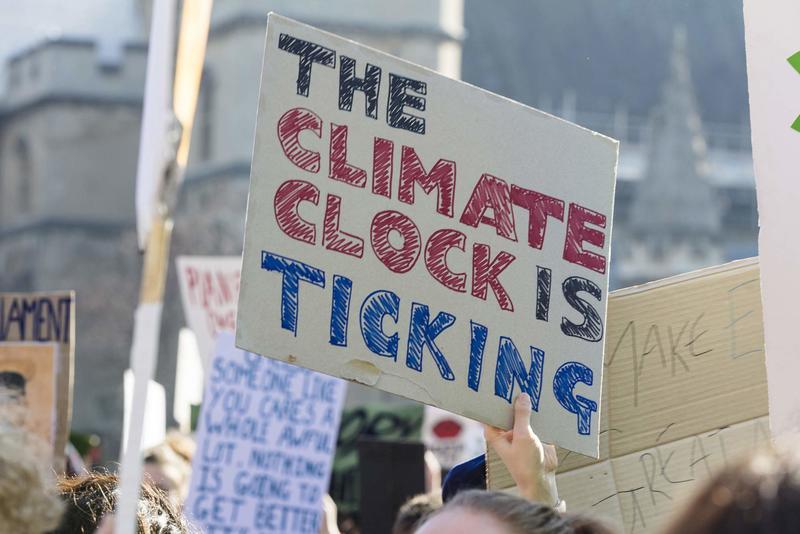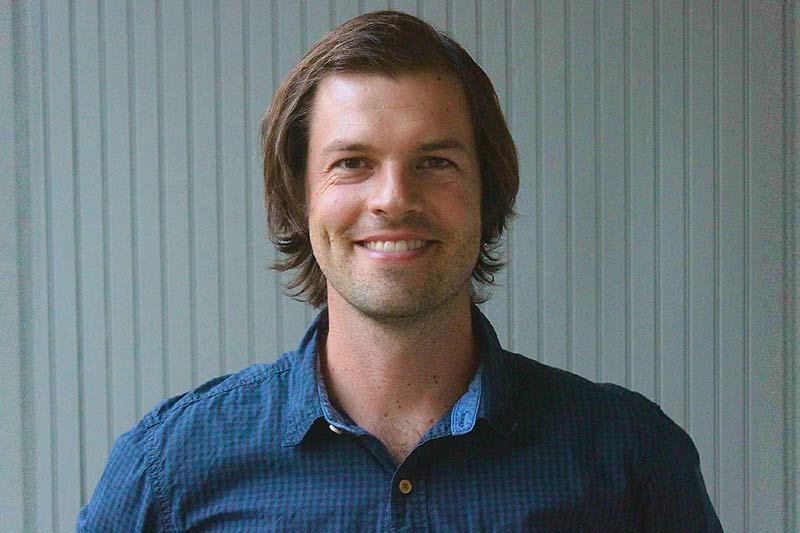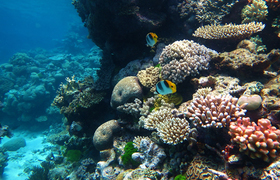Rare NRF P-rating for UCT’s Christopher Trisos
09 February 2021 | Story Stephen Langtry. Video Supplied. Read time 5 min.
Dr Christopher Trisos, who directs the Climate Risk Laboratory at the African Climate and Development Initiative (ACDI) at the University of Cape Town (UCT), has received the rare honour of being awarded a P-rating by the National Research Foundation (NRF). This recognition is reserved for young researchers (normally younger than 35 years of age) who have held a doctorate for less than five years and are considered likely to become future international leaders in their field.
“It is very affirming that a panel of fellow scientists have recognised the choices that I have made in my career,” said Dr Trisos.
His career has taken him from a high school student with a fascination for the outdoors but who did not particularly like classroom biology as a subject to an internationally recognised scholar who advises governments on climate change.
Trisos, whose research is funded by a Future Leaders – African Independent Research (FLAIR) Fellowship from the Royal Society and the African Academy of Sciences, credits his parents and grandparents for instilling in him a love for nature and the outdoors.
“Growing up in Cape Town with its fynbos and the ocean but also deep inequalities in income inspired an interest in ecology and economics,” he said.
But it was only in his undergraduate years at UCT that he began to see environmental sciences in a new light and that his passion for research was fired up.
A team effort
While choosing not to take biology as a subject in high school, he enjoyed environmental studies at UCT, especially the field trips led by his lecturers in the then departments of Botany and Zoology. People such as Emeritus Professor William Bond, Emeritus Professor George M Branch and Associate Professor Edmund February made a strong impression on him. Trisos completed his BSc and BSc honours degrees at UCT before he earned a master’s and later doctorate in zoology from Oxford University, where he was a Rhodes Scholar.

Returning to UCT in 2019, Trisos set up the Climate Risk Lab. The lab integrates data and methods from environmental and social sciences to help inform rapid, just and equitable responses to the climate crisis. Current research questions include climate change risks to biodiversity and whether ecological disruption from climate change will be gradual or abrupt, climate change risks to wild-harvested food plants, how climate change impacts the prevalence of infectious disease, whether solar geoengineering increases climate change risks, and how to manage risk across interconnected social and environmental systems.
“As the recipient of a 2020 UCT Young Researcher Award, he has already contributed significantly to the university’s research enterprise.”
He sees the awarding of the P-rating as an opportunity to pause to thank his mentors, collaborators and an incredible team of researchers at the Climate Risk Lab. Not one research paper from the group has appeared under the name of a single author only; their work has been a team effort, Trisos said.
“We are incredibly proud of Dr Trisos and this remarkable achievement, particularly as a researcher who still has the bulk of his academic work ahead of him,” said Deputy Vice-Chancellor for Research and Internationalisation Professor Sue Harrison.
“As the recipient of a 2020 UCT Young Researcher Award, he has already contributed significantly to the university’s research enterprise, and for that we are thankful. We wish him all of the best in his future endeavours.”
The honour will also spur him on to continue growing the lab: “We are at the onset of a climate crisis – there is no doubt that the choices we make now will influence multiple future generations,” he said.
The lab is engaged in research on climate change risks, and the research group is building tools to predict where and when climate change risks appear and how best to respond to them.
Changing course
The climate crisis has been brought on by human intervention and we have the power to change the trajectory, Trisos said.
Biodiversity and climate solutions are intricately interlinked, and the more greenhouse gas emissions we can stop, the more our chances improve of stabilising the climate. But society also needs to adapt to reduce negative impacts from a changing climate, such as the risk of another Cape Town drought. Every year of action on reducing emissions and adapting to climate change matters – and earlier action would be better.
The best analogy is speeding along a highway and missing the exit to your destination.
“You can still take the next exit and, if you miss that, even the next one. What would be foolish would be to continue in the wrong direction along the highway.”
 This work is licensed under a Creative Commons Attribution-NoDerivatives 4.0 International License.
This work is licensed under a Creative Commons Attribution-NoDerivatives 4.0 International License.
Please view the republishing articles page for more information.










